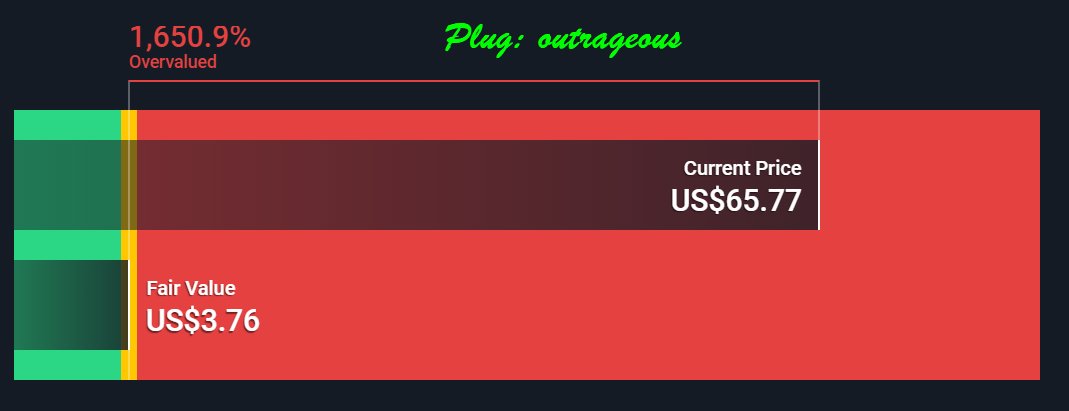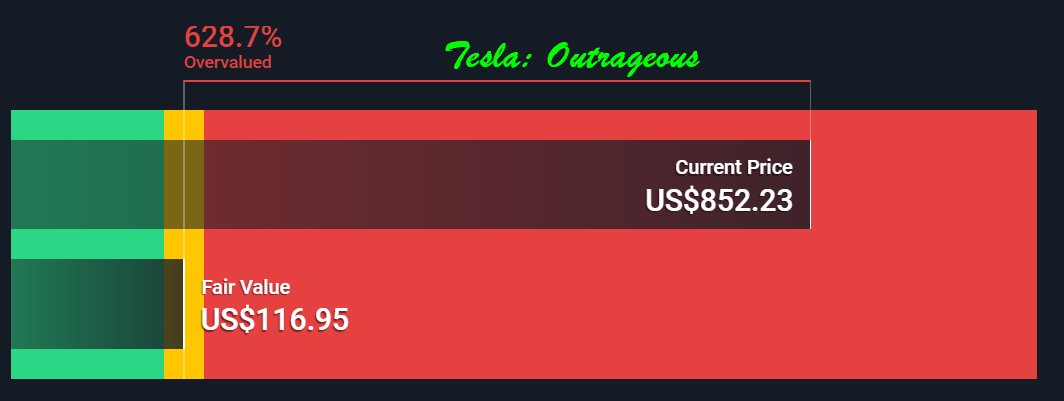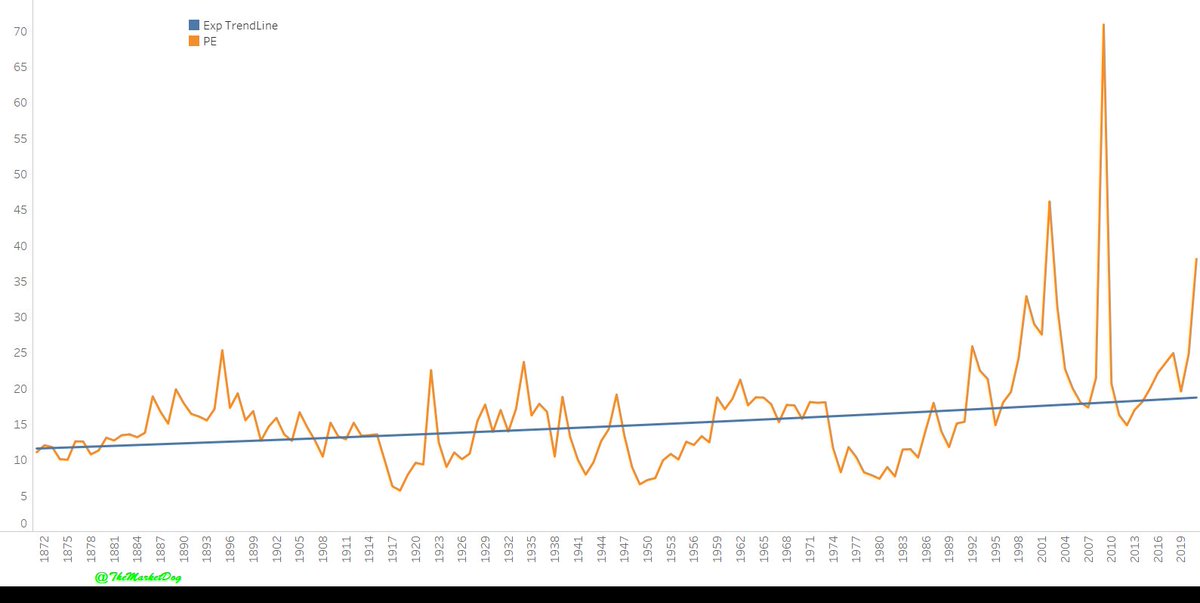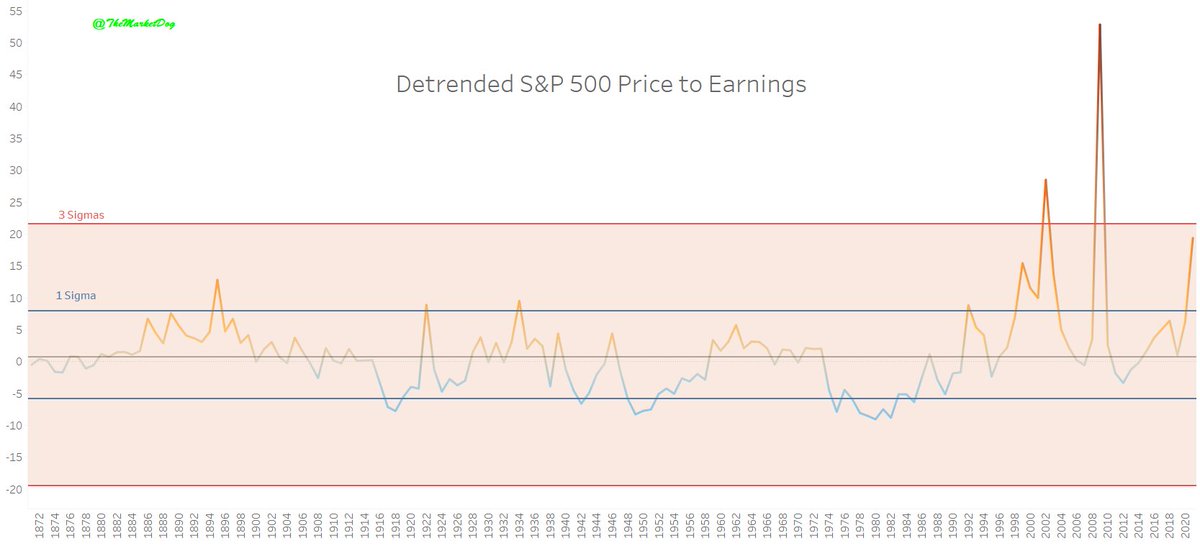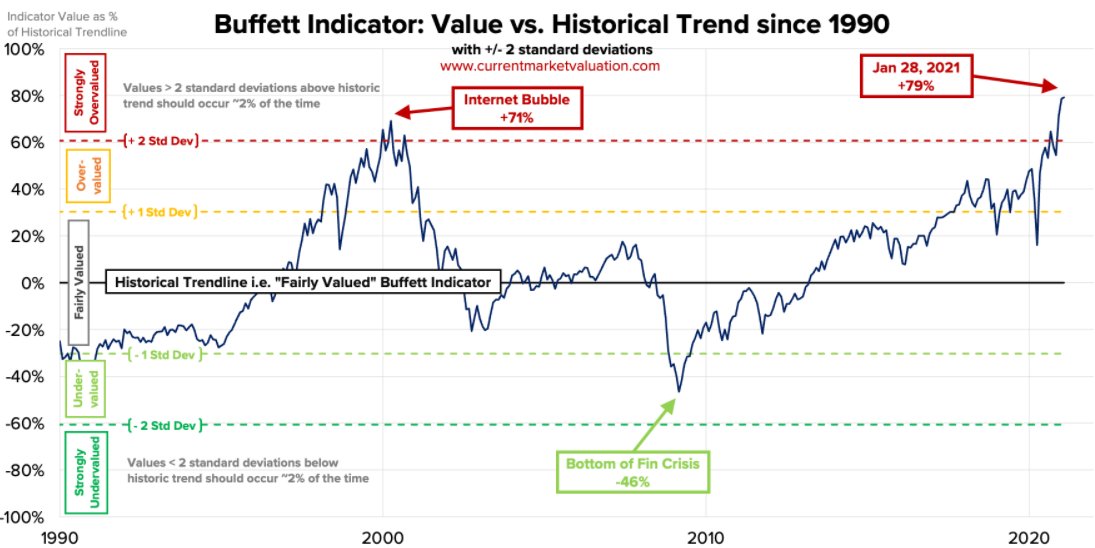Are stocks expensive?
Shocking news: I am a bear
People came to challenge my "19th century view on market valuations"
I will try with this thread to challenge my bias
Shocking news: I am a bear
People came to challenge my "19th century view on market valuations"
I will try with this thread to challenge my bias
1/
 Assumption: rates always have gone down.
Assumption: rates always have gone down.
 Yields at 0 are not a surprise.
Yields at 0 are not a surprise.
 Therefore all my analysis will be de-trended to adjust to this parameter
Therefore all my analysis will be de-trended to adjust to this parameter
Read this thread to understand more https://twitter.com/TheMarketDog/status/1336239467447812096?s=20
https://twitter.com/TheMarketDog/status/1336239467447812096?s=20
 Assumption: rates always have gone down.
Assumption: rates always have gone down. Yields at 0 are not a surprise.
Yields at 0 are not a surprise. Therefore all my analysis will be de-trended to adjust to this parameter
Therefore all my analysis will be de-trended to adjust to this parameterRead this thread to understand more
 https://twitter.com/TheMarketDog/status/1336239467447812096?s=20
https://twitter.com/TheMarketDog/status/1336239467447812096?s=20
2/
Some history
 The logic behind the stock market is that investors provide capital in return for a dividend
The logic behind the stock market is that investors provide capital in return for a dividend
 Companies generate these dividends through positive cash flows
Companies generate these dividends through positive cash flows
Some history https://twitter.com/TheMarketDog/status/1357902743088730112?s=20
https://twitter.com/TheMarketDog/status/1357902743088730112?s=20
Some history
 The logic behind the stock market is that investors provide capital in return for a dividend
The logic behind the stock market is that investors provide capital in return for a dividend Companies generate these dividends through positive cash flows
Companies generate these dividends through positive cash flowsSome history
 https://twitter.com/TheMarketDog/status/1357902743088730112?s=20
https://twitter.com/TheMarketDog/status/1357902743088730112?s=20
3/
What are 2 main ways to do company valuation
 DCF - IMHO the most logical as it computes the future projected cash flow & includes cost of capital
DCF - IMHO the most logical as it computes the future projected cash flow & includes cost of capital
 Comparable company ratio (e.g. P/E, EV/EBITDA)
Comparable company ratio (e.g. P/E, EV/EBITDA)
What are 2 main ways to do company valuation
 DCF - IMHO the most logical as it computes the future projected cash flow & includes cost of capital
DCF - IMHO the most logical as it computes the future projected cash flow & includes cost of capital Comparable company ratio (e.g. P/E, EV/EBITDA)
Comparable company ratio (e.g. P/E, EV/EBITDA)
5/
Examples of DCF (or fair value)
 Tech
Tech
$AAPL: market leader
$GOOG: pure tech
 Industrials
Industrials
$TSLA: retail favorite
$PLUG: small cap leader
 Tech is "cheaper". So the thesis that the market is high because we're investing in tech doesn't make sense.
Tech is "cheaper". So the thesis that the market is high because we're investing in tech doesn't make sense.
Examples of DCF (or fair value)
 Tech
Tech$AAPL: market leader
$GOOG: pure tech
 Industrials
Industrials$TSLA: retail favorite
$PLUG: small cap leader
 Tech is "cheaper". So the thesis that the market is high because we're investing in tech doesn't make sense.
Tech is "cheaper". So the thesis that the market is high because we're investing in tech doesn't make sense.
6/
Let me challenge your view on P/E
 Interest rates always go down. The long-term impact of low rates is priced in the market at any time
Interest rates always go down. The long-term impact of low rates is priced in the market at any time
 Detrending the P/E will solve the problem of lowering bonds yields
Detrending the P/E will solve the problem of lowering bonds yields
 Here is the S&P P/E & the exponential trendline since 1870
Here is the S&P P/E & the exponential trendline since 1870
Let me challenge your view on P/E
 Interest rates always go down. The long-term impact of low rates is priced in the market at any time
Interest rates always go down. The long-term impact of low rates is priced in the market at any time Detrending the P/E will solve the problem of lowering bonds yields
Detrending the P/E will solve the problem of lowering bonds yields Here is the S&P P/E & the exponential trendline since 1870
Here is the S&P P/E & the exponential trendline since 1870
7/
 Now let's look at the variance to the exponential trendline
Now let's look at the variance to the exponential trendline
 There are always periods of manias. Fortunately for the sounds investor, these period usually followed by periods where stocks are "cheap"
There are always periods of manias. Fortunately for the sounds investor, these period usually followed by periods where stocks are "cheap"
 Temporary periods of high ratios are not new
Temporary periods of high ratios are not new
 Now let's look at the variance to the exponential trendline
Now let's look at the variance to the exponential trendline There are always periods of manias. Fortunately for the sounds investor, these period usually followed by periods where stocks are "cheap"
There are always periods of manias. Fortunately for the sounds investor, these period usually followed by periods where stocks are "cheap" Temporary periods of high ratios are not new
Temporary periods of high ratios are not new
8/
From time to time P/E is high due to a very big "blip" in the earnings. 2009 is a good example. Stocks were "cheap" but the price earning was high.
I look at the "Buffet indicator" (Stocks/GDP) to assess this. Also de-trended.
We can see that P/E wasn't relevant in 2009.
From time to time P/E is high due to a very big "blip" in the earnings. 2009 is a good example. Stocks were "cheap" but the price earning was high.
I look at the "Buffet indicator" (Stocks/GDP) to assess this. Also de-trended.
We can see that P/E wasn't relevant in 2009.
9/
 So let's remove the "blip" of 2020 (& 2021, 2022)
So let's remove the "blip" of 2020 (& 2021, 2022)
 To do this I will look at the Shiller Ratio - CAPE. De-trended with an exp. regression
To do this I will look at the Shiller Ratio - CAPE. De-trended with an exp. regression
 Avg inflation-adjusted earnings from the previous 10 years
Avg inflation-adjusted earnings from the previous 10 years
 34.6% above the trend. Only in '99, stocks were more expensive
34.6% above the trend. Only in '99, stocks were more expensive
 So let's remove the "blip" of 2020 (& 2021, 2022)
So let's remove the "blip" of 2020 (& 2021, 2022) To do this I will look at the Shiller Ratio - CAPE. De-trended with an exp. regression
To do this I will look at the Shiller Ratio - CAPE. De-trended with an exp. regression Avg inflation-adjusted earnings from the previous 10 years
Avg inflation-adjusted earnings from the previous 10 years 34.6% above the trend. Only in '99, stocks were more expensive
34.6% above the trend. Only in '99, stocks were more expensive
In conclusion, through history people always found reason to justify sky high valuations. But more often than these sky-high valuations are not justified.
Thank you for reading & to re-tweet if you were interest
Thank you for reading & to re-tweet if you were interest
@threadreaderapp unroll
link to the top: https://twitter.com/TheMarketDog/status/1357918284100763654?s=20

 Read on Twitter
Read on Twitter


